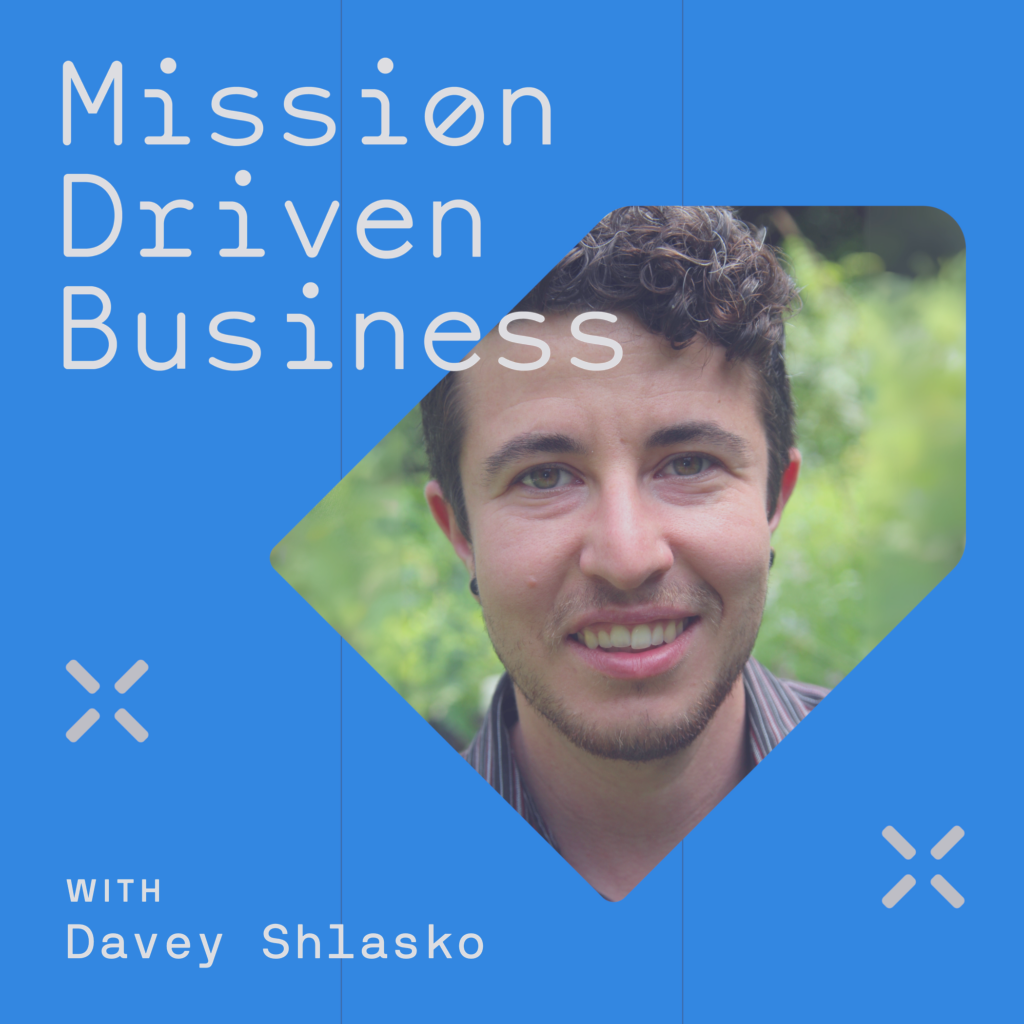Reflections of the Week
Building Systems For Change
Happy Friday, all!
I hope you had a good week. We dropped yet another impactful and inspiring MDB episode this week.
I chatted with Davey Shlasko, founder and CEO of Think Again Training and Consulting, a company that helps align business actions and values. With more than 20 years of experience in adult learning and organizational development, Davey specializes in driving systematic change, focusing on equity and inclusion. Davey shares practical tools for aligning internal practices with external values, discusses strategies for fostering accountability and transparency, and offers hope for navigating uncertainty in today’s climate.
Episode Highlights
Mission-driven businesses put purpose before profit.
Rather than benefiting the owners or leaders of a company, Davey says a mission-driven business benefits the broader world or a specific community. That means an organization’s mission must guide decision-making, even when it involves trade-offs.
“Mission has to sometimes come before profit,” Davey said. “Usually having a positive purpose can align very well with making a profit, but sometimes there are trade-offs.”
Align your company’s internal and external values.
Davey emphasized that a mission-driven business’s values should be reflected externally and internally. Through Think Again Training and Consulting, Davey works with mission-driven organizations to ensure their internal culture, operations, and systems align with the values they promote externally.
“It’s not always as obvious how those same values might apply to your own operations or internal culture, even if it’s clear how they should apply to the programs or services you provide,” Davey said.
Be accountable to your stakeholders, including your employees.
It’s essential to identify who your organization is accountable to and ensure those stakeholders have a voice. If leaders of a mission-driven business don’t hold the organization accountable to its values and core stakeholders, you can have mission drift.
“Part of my responsibility is to hold us accountable to our values that we’ve agreed on,” Davey said. “No matter what we hope our positive impact on the world will be, it’s likely that the greater impact we’ll have is on the people we’re working most closely with: each other.”
Transparency is non-negotiable.
Part of the work of Think Again Training and Consulting is providing companies transparency, which Davey defines as opportunities for informed input. Being transparent balances mindfulness of individuals’ privacy with honesty about feedback the organization needs to hear.
“In smaller organizations, anonymity might not be possible, so we have a conservation about what piece of information we could share that would not make you vulnerable,” Davey said.
Inclusiveness shouldn’t be overwhelming.
While it’s great when leaders of a company want to make sure all voices are heard, sometimes they can take their intentions too far by trying to get a consensus for every decision. Asking employees to give too much input in the decision-making process can be overwhelming and ineffective
“You need to design a decision-making process where employees can give input without overburdening,” Davey said. “I want our decision-making to be inclusive, but I also want it to work.”
Questions of the Week
- How does your organization ensure that its internal practices align with the external values it promotes?
- Who are the key stakeholders in your organization, and how do you currently hold yourself accountable to them?
- How can you balance inclusiveness and efficiency in your decision-making processes?
Tool of the Week
I loved all of the nuggets of Wisdom Davey shared. You can learn more about Davey and Think Again training and consulting at the links below.




